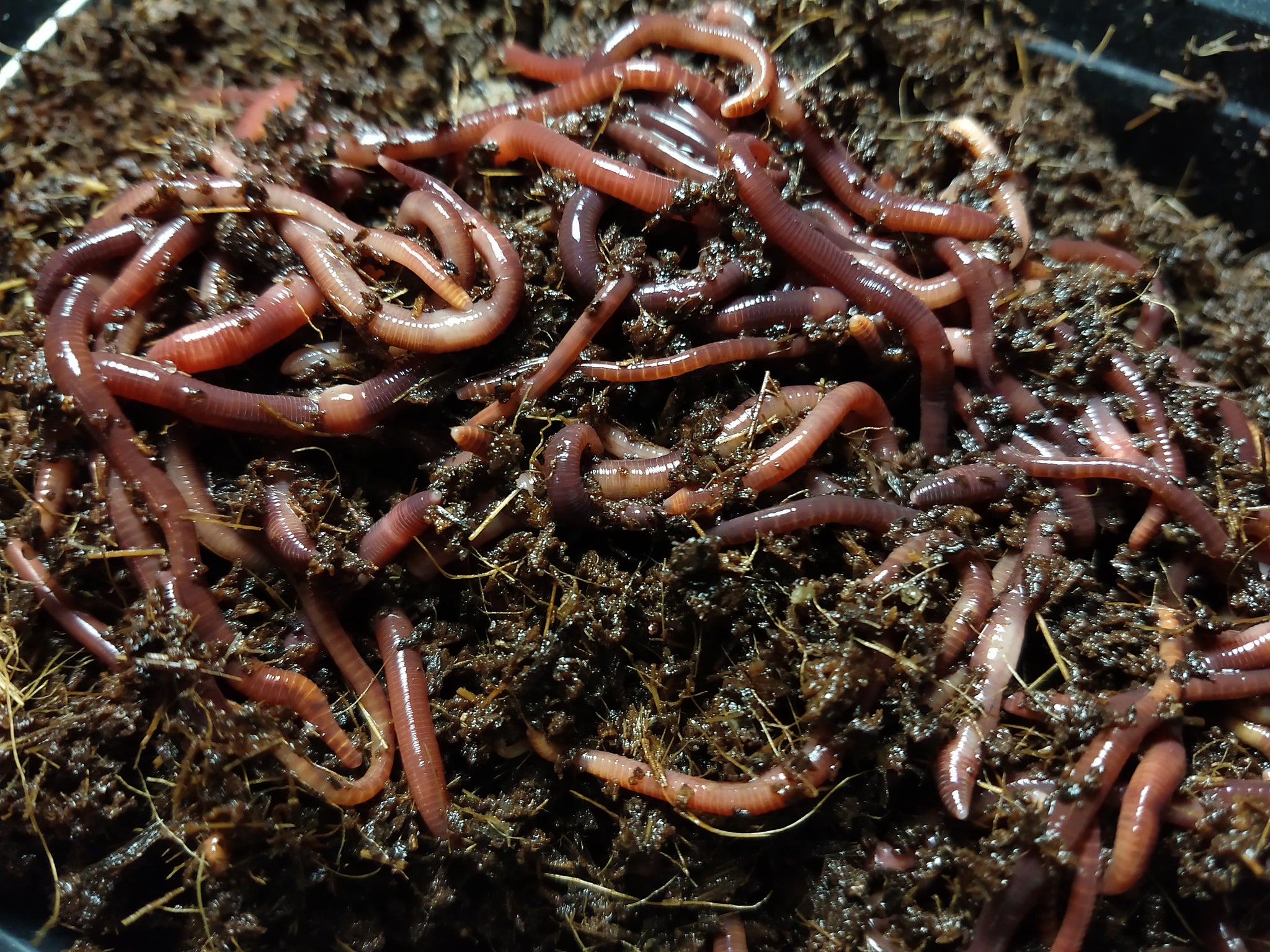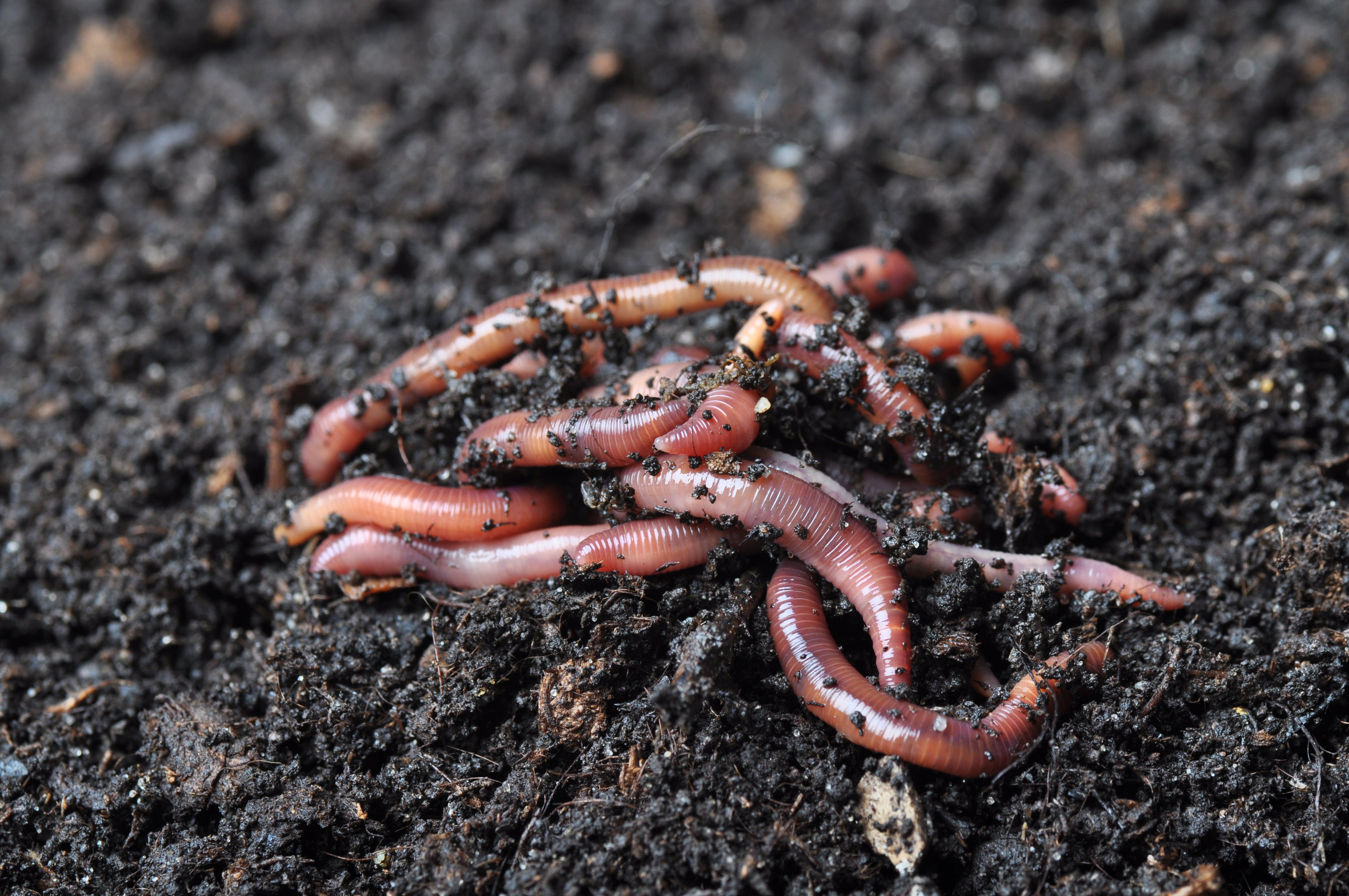The Unbelievable World of Red Wigglers: Increase Your Dirt Fertility Today
The function of red wigglers, or Eisenia fetida, in improving soil fertility is a subject of expanding passion amongst gardeners and agricultural professionals. These small yet efficient microorganisms transform organic waste into valuable worm spreadings, significantly improving soil health and wellness and advertising lasting techniques. As we explore the benefits of vermicomposting and the useful actions to develop a reliable worm container, the prospective influence of these worms on your horticulture success comes to be significantly obvious. Understanding the nuances of their treatment and application may just alter the way you come close to dirt management. What insights can be obtained from integrating these amazing animals right into your gardening routine?
Understanding Red Wigglers
Red wigglers, medically recognized as Eisenia fetida, are a varieties of earthworm that play an important function in boosting soil fertility. These worms grow in organic-rich settings, such as compost heap and rotting plant product, where they eat natural waste and eliminate nutrient-dense spreadings. Their distinct makeup, including a fractional body and a clitellum, allows them to replicate rapidly and successfully procedure big amounts of organic issue.

The eco-friendly importance of red wigglers expands past plain waste processing; they add to the dirt food internet, cultivating a diverse neighborhood of microorganisms that better improve soil health. Comprehending the biology and actions of red wigglers is crucial for using their complete potential in lasting farming and gardening practices.
Benefits of Vermicomposting
In addition, vermicomposting enhances soil framework and oygenation. The presence of worm castings boosts soil structure, permitting far better water retention and drainage. This balanced dampness level is essential for root development and the overall health and wellness of plants. Moreover, red wigglers help damage down organic matter, accelerating decay and recycling nutrients back right into the dirt.
Vermicomposting additionally cultivates microbial task, which is essential for a healthy soil community. Beneficial bacteria prosper in the existence of worm spreadings, assisting in the failure of natural products and my link boosting nutrition accessibility to plants.
Finally, vermicomposting works as an efficient waste administration option, minimizing garbage dump waste by recycling kitchen scraps and various other natural products. This not only adds to environmental sustainability but also promotes a round economy within gardening and agriculture.
How to Set Up a Worm Bin
Setting up a worm container is an uncomplicated process that can substantially improve your composting efforts. Begin by choosing a suitable container, which can range from a commercially available worm container to a straightforward plastic or wooden box (Red Wiggler Express). Ensure the container has ample air flow; small openings in the lid and sides will certainly help with air circulation
Following, create a bed linen layer to offer a comfy atmosphere for the red wigglers. This can be made from shredded paper, cardboard, or coconut coir, moistened to a damp, sponge-like uniformity. Fill the container to about one-third complete with this bedding product.
As soon as the bedding is prepared, it's time to present the worms. Red wigglers prosper in organic waste, so area them gently onto the bed linens. Cover the worms with a light layer of added bed linen to aid them accustom.
Feeding Your Red Wigglers
Giving the right food for your red wigglers is important for their health and wellness and the effectiveness of your composting system. Red wigglers prosper on a diverse diet, mostly including natural materials such as vegetables and fruit scraps, coffee grounds, and shredded paper. These products not only give important nutrients yet also add to the microbial task in the worm bin, which is important for the worms' food digestion.
It is necessary to prevent particular foods, such as dairy products, oils, and meats, as these can draw in bugs and develop unpleasant odors. Furthermore, citrus peels and extremely spicy foods ought to be limited because of their possible to damage the worms. A balanced method to feeding includes keeping track of the amount of food introduced to the container, guaranteeing that it is eaten within a sensible time framework to protect against excess waste buildup.
To promote optimum digestion, it is useful to slice or shred bigger food things prior to including them to the container. This technique raises the area for microbial activity, facilitating quicker decomposition and improving the general effectiveness of your composting system. Consistently observing the worms' feeding practices will help you adjust their diet as essential.
Making Use Of Worm Spreadings in Your Yard

To maximize the advantages, aim to use around one part worm spreadings to three components soil in your growing beds. Normal applications can cause improved plant returns and healthier plants, making worm spreadings a vital resource for both newbie and skilled garden enthusiasts alike. By utilizing this all-natural amendment, you can grow a thriving yard while adding to sustainable horticulture practices.
Verdict
Finally, red wigglers exhibit the important duty of vermicomposting in improving dirt fertility. Their ability to transform natural waste into nutrient-rich castings considerably improves dirt framework and supports microbial variety. Establishing a vermicomposting system not only promotes lasting gardening practices however also adds to ecological health and wellness. By leveraging the advantages of these remarkable organisms, garden enthusiasts can grow more productive and durable ecological communities, ultimately fostering a much more lasting strategy to farming and horticulture.
Comments on “Get the Perfect Worms for Your Compost with Red Wiggler Express”